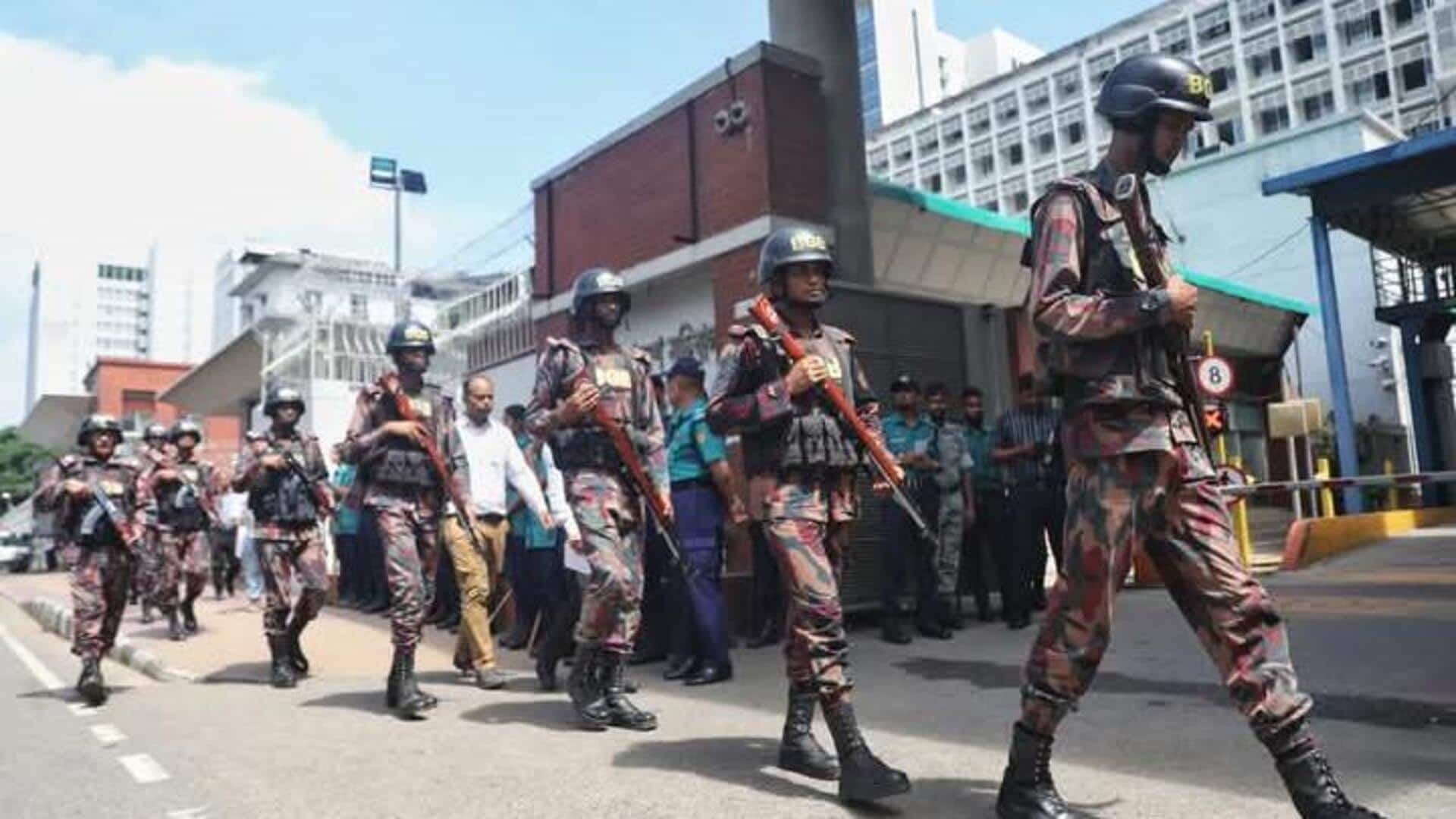
Yunus deploys SWAT as Secretariat protests continue for 4th day
What's the story
The interim government of Bangladesh, led by Nobel laureate Muhammad Yunus, has deployed Special Weapons and Tactics (SWAT) and Border Guard Bangladesh (BGB) personnel to control protests at the Secretariat. The protests were triggered by the Public Service (Amendment) Ordinance 2025, which allows the government to dismiss employees for certain disciplinary violations without formal proceedings within 14 days. The ordinance was issued by the president and gazetted on Sunday evening, shortly after staff voiced opposition.
Unyielding protests
Protests continue despite heightened security measures
Despite the deployment of SWAT and BGB personnel, protests continued on Tuesday. The demonstrations began outside Building No. 6 in the Secretariat's Badamtoli sector at 11:00am with tight security at all gates. Only Secretariat officials and staff are currently allowed entry into the premises. On Saturday, the Ministry of Home Affairs had announced that no visitors would be permitted inside the building on Tuesday. The Bangladesh Secretariat Officers and Employees United Council confirmed that protests will go ahead as planned.
Rising discontent
Yunus government faces pressure from multiple sectors
"Even during the time of the fascist Awami League, such a law was not made," Business Standard quoted the president of the Anti-Discrimination Employees' Unity Forum as saying. The Yunus administration is under pressure from civil servants, teachers, political parties, and the military. The interim government is trying to steer the country through a fragile transition before general elections. Primary school teachers also joined public sector workers in protests against the interim government on Monday over wage hikes.
Uncertain transition
Yunus administration faces challenges in managing protests
The unrest has also put a strain on the Yunus administration's attempts to manage political tensions. Last week, a top student leader said Yunus could step down if political parties can't agree on reforms and an election timeline. However, Wahiduddin Mahmud, planning adviser in Yunus's cabinet, said the de facto prime minister was not quitting. "We are not going anywhere till our job is done," Mahmud said over the weekend.
Election pressure
Political parties and military call for early elections
The interim government is caught between demands for quick general elections and reforms. Yunus has said elections could be held by June 2026, while the Bangladesh Nationalist Party (BNP) wants polls by December. Bangladesh's army chief General Waker-Uz-Zaman also called for December elections in a recent speech. Yunus held talks with major political forces over the weekend amid these pressures.